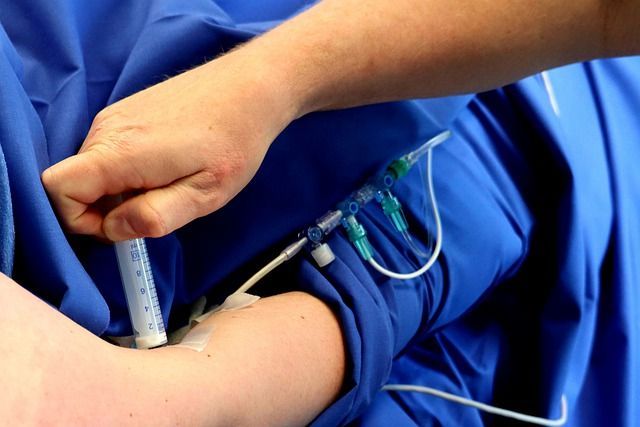Acquired Infections
Medical Malpractice Attorneys in Pennsylvania
Contact Frischman & Rizza Today
Frischman & Rizza, P.C.

Quick Facts
On any given day, about 1 in 31 hospital patients has at least one healthcare-associated infection.
There were an estimated 687,000 HAIs in U.S. acute care hospitals in 2015
About 72,000 hospital patients with HAIs died during their hospitalizations in 2015.The rate of pedestrian deaths per billion miles in the U.S. rose from 1.8 to 2.2 in 2020.
ACQUIRED INFECTIONS
Pittsburgh Hospital Acquired Infections Attorney
Hospital-acquired infections (infections that patients develop while staying in the hospital following surgery or other procedures) are a very serious national healthcare crisis. One of the most serious types of hospital-acquired infections is methicillin-resistant staphylococcus aureus (MRSA). This is a type of bacteria that is resistant to certain antibiotics, including methicillin and other more common antibiotics such as oxacillin, penicillin, and amoxicillin.
According to the Centers for Disease Control (CDC), data published in a study in the Journal of the American Medical Association estimated the number of people who developed the serious MRSA infection in 2005 alone was approximately 94,000 people. Approximately 18,650 patients died during a hospital stay due to a serious MRSA infection. According to the CDC, staph infections, including MRSA, occur most frequently among patients in hospitals and healthcare facilities, such as nursing homes and dialysis centers.
Have you been injured?
Contact an attorney at Frischman & Rizza for a free case evaluation
Call Us On
Pennsylvania Bacterial Meningitis Misdiagnosis Lawyers
Another serious type of infection is bacterial meningitis. Meningitis is an infection of the fluid of a person’s spinal cord and the fluid that surrounds the brain. Sometimes, it is referred to as spinal meningitis. Meningitis can be caused by either a viral or a bacterial infection. Viral meningitis is generally less severe and resolves without specific treatment while bacterial meningitis can be very severe and is often times a medical emergency because it can result in brain damage, limb amputation, hearing loss or learning disability.
The leading causes of bacterial meningitis are the following types of bacteria: streptococcus pneumonia and neisseria meningitidis (usually referred to as meningococcus). While any person of any age can become infected, bacterial meningitis most frequently affects children and young adults. The symptoms range from fever, headache and stiff neck to more severe symptoms such as confusion or seizures.
Vancomycin Resistant Enterococcus (VRE)
Another serious hospital-acquired infection is vancomycin resistant enterococcus (VRE). VRE can cause very serious infections such as urinary tract infections (UTI), wound infection or even infections of the blood. Some people are more likely to get VRE than others, especially those who are hospitalized for a long time or who have a decreased ability to fight infection. The only way to check for this infection is to obtain a cultural using a special cotton swab rubbed gently on the skin outside of the rectum. Results from the cultural are usually available in 2 or 3 days.
Contact Our Pennsylvania Medical Malpractice Lawyers Today
Regardless of the type of hospital infection, it is critical that appropriate screening, testing, and treatment be provided to patients as soon as possible. Unfortunately, medical malpractice can occur if a physician or hospital fails to appreciate the signs and symptoms of an infectious disease such as MRSA, meningitis or VRE and treat it quickly and appropriately.


